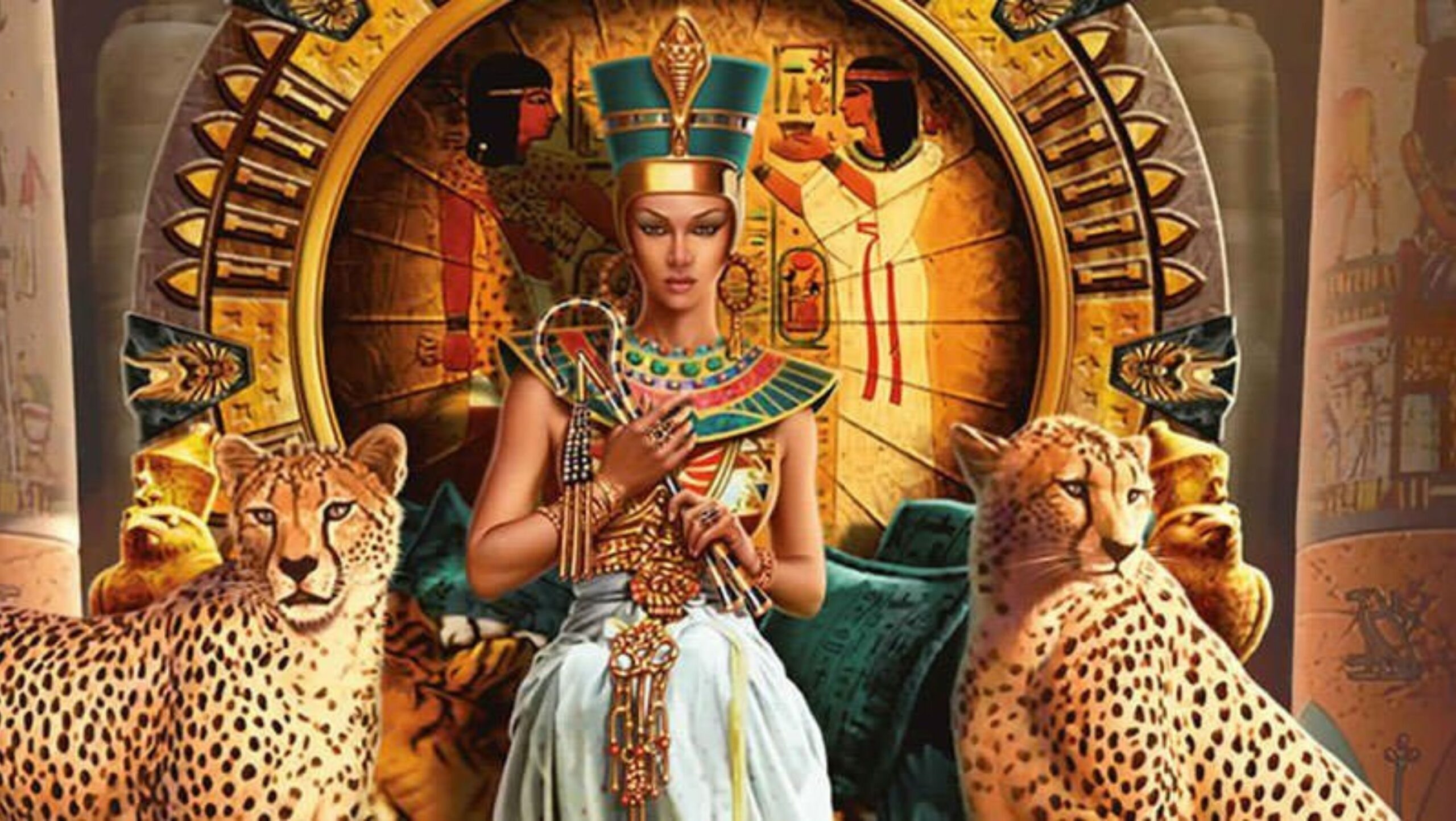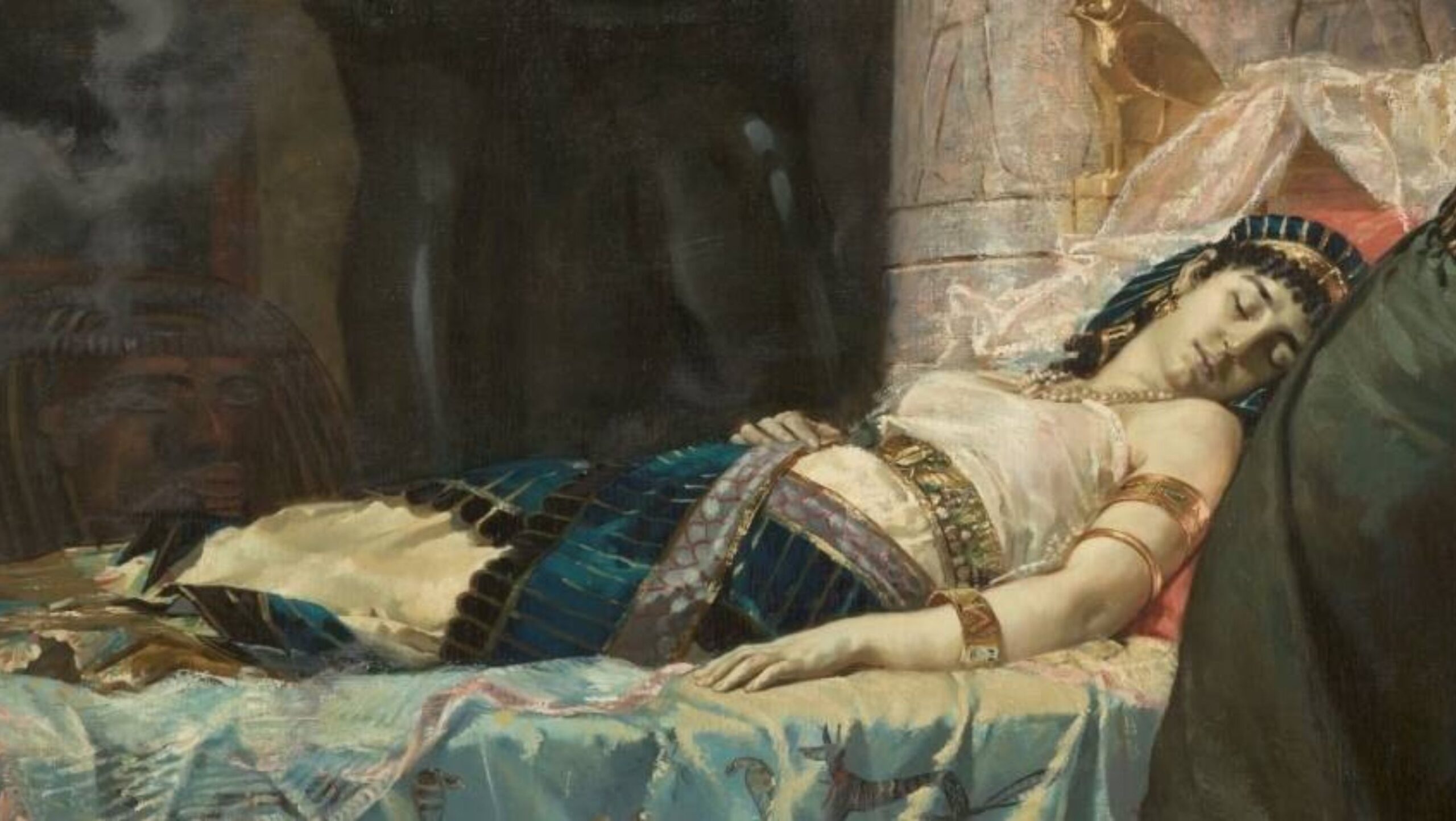Ever wondered about the real story behind Egypt’s most famous queen? The Cleopatra biography takes you back to a time when dynasties ruled, and intrigue was as common as sand in Alexandria. This isn’t just any tale; it’s a journey through history that reveals how one woman defied expectations and left an indelible mark on the world.
For centuries, the story of Cleopatra VII, or just “Cleopatra” to most of us, has captured the imaginations of both historians and anyone who loves a good tale. But who was she beyond Hollywood’s portrayal? Was she truly Rome’s seductress or a politically astute leader fighting for her country’s independence?
Table of Contents:
- Who Was Cleopatra?
- Cleopatra’s Rise to Power
- Cleopatra and Julius Caesar
- Cleopatra and Mark Antony
- The Fall of Cleopatra
- Conclusion
Who Was Cleopatra?

Cleopatra VII, the last active ruler of the Ptolemaic Kingdom of Egypt, has captured imaginations for centuries. But who was the real Cleopatra behind the legend?
Born in 69 BC, Cleopatra was a member of the Ptolemaic dynasty, a family of Macedonian Greek origin that ruled Egypt after Alexander the Great’s death. Despite her Greek ancestry, Cleopatra embraced her Egyptian identity.
Cleopatra’s full name was Cleopatra VII Philopator. In Greek, her name meant “glory of the father,” referring to her father, Ptolemy XII Auletes. The Ptolemaic dynasty ruled Egypt from 305 to 30 BC, and Cleopatra was the last in the line.
Cleopatra’s Education and Intellect: Cleopatra Biography
Cleopatra received a top-notch education, as was customary for Ptolemaic princesses. She was the first Ptolemaic ruler to learn the Egyptian language, setting her apart from her predecessors.
According to ancient sources, Cleopatra spoke as many as a dozen languages. Plutarch highlighted her intellectual brilliance, noting that “her beauty, as they say, was not in itself altogether incomparable… but the contact of her presence… was irresistible.”
Cleopatra as Pharaoh and Goddess
As pharaoh, Cleopatra embraced Egyptian culture and portrayed herself as the reincarnation of the goddess Isis. Aligning herself with Isis enhanced her position among the Egyptian people.
Cleopatra adopted traditional Egyptian styles, participating in religious ceremonies to solidify her role as a divine ruler. Her willingness to embrace Egyptian customs set her apart from other Ptolemaic rulers and endeared her to the Egyptian people.
Cleopatra’s Rise to Power: Cleopatra Biography
Cleopatra’s path to the throne was not easy. She faced political challenges and rivalries that tested her resolve and ingenuity.
When Ptolemy XII died in 51 BC, he left his throne to 18-year-old Cleopatra and her 10-year-old brother, Ptolemy XIII. According to their father’s will, the siblings were to rule Egypt as co-rulers.
However, Ptolemy XIII’s advisors refused to acknowledge Cleopatra as co-ruler, sparking a power struggle. In 49 BC, Cleopatra was forced to flee Egypt for Syria, where she raised an army to reclaim her throne.
Rivalry with Ptolemy XIII: Cleopatra Biography
Cleopatra’s rivalry with her brother Ptolemy XIII reached a boiling point in 48 BC. Ptolemy’s forces cornered Cleopatra near Pelusium, but Julius Caesar’s arrival in Alexandria shifted the balance of power.
Caesar, who had pursued his rival Pompey to Egypt, took Cleopatra’s side in the sibling rivalry. Together, they defeated Ptolemy XIII’s forces in the Battle of the Nile. Ptolemy XIII drowned in the Nile, leaving Cleopatra as the sole ruler of Egypt.
Establishing Her Rule
With Ptolemy XIII gone, Cleopatra consolidated her power. She ruled with her younger brother Ptolemy XIV as co-ruler, but he was a mere figurehead. Cleopatra was the true power behind the throne.
To further solidify her rule, Cleopatra sought Julius Caesar’s support. Their alliance would have far-reaching consequences for Egypt and Rome.
Cleopatra and Julius Caesar: Cleopatra Biography
The relationship between Cleopatra and Julius Caesar was one of the most famous in history. It was a political alliance with personal undercurrents that would change the course of both their lives.
Cleopatra saw an opportunity in Julius Caesar. She could secure her throne and protect Egypt’s interests by aligning herself with the powerful Roman general.
According to legend, Cleopatra had herself smuggled into Caesar’s quarters in a rolled-up carpet. Her bold move impressed Caesar, and the two formed an alliance. Caesar supported Cleopatra’s claim to the throne and declared her the rightful ruler of Egypt.
Birth of Caesarion
In 47 BC, Cleopatra gave birth to a son, Ptolemy Caesar, nicknamed Caesarion, meaning “little Caesar.” Cleopatra claimed that Caesar was the father, and while he never publicly acknowledged paternity, he allowed the boy to bear his name.
The birth of Caesarion tied Cleopatra’s fate even more closely to Caesar’s. It also provided her with an heir to continue the Ptolemaic line.
Aftermath of Caesar’s Assassination: Cleopatra Biography
In 44 BC, Julius Caesar was assassinated in Rome. His death threw the Roman Republic into chaos and had ripple effects in Egypt.
Cleopatra quickly returned to Alexandria with Caesarion. She knew that her son’s safety and future depended on her next moves. With Caesar gone, Cleopatra would need to find a new ally to protect her throne and Egypt’s interests.
Cleopatra and Mark Antony: Cleopatra Biography
After Caesar’s death, Cleopatra found a new ally in Mark Antony, one of the triumvirs who ruled Rome in the power vacuum of Caesar’s assassination. Their relationship, both political and personal, would become the stuff of legend.
In 41 BC, Mark Antony summoned Cleopatra to Tarsus to answer charges that she had aided his enemies. Cleopatra arrived in style, sailing up the Cydnus River in a luxurious barge adorned with gold, purple sails, and silver oars.
Cleopatra’s grand entrance and charm offensive worked. Antony was captivated. The two embarked on a romance that was as much about pleasure as it was about political advantage.
Their Children Together
Cleopatra and Antony had three children together. In 40 BC, Cleopatra gave birth to twins Alexander Helios and Cleopatra Selene. Three years later, she bore another son, Ptolemy Philadelphus.
The children were a tangible representation of the bond between Cleopatra and Antony. They also served a political purpose, as Antony bestowed territories on each child, effectively making them client rulers and extending Cleopatra’s influence.
Political and Personal Relationships: Cleopatra Biography
The relationship between Cleopatra and Antony was a complex intertwining of the political and the personal. Cleopatra needed Antony’s support to maintain her grip on power and protect Egypt’s interests. Antony, in turn, relied on Egypt’s wealth and resources to further his own ambitions.
Their personal bond was equally strong. Plutarch describes their lavish banquets and extravagant lifestyles. Cleopatra’s wit and charm kept Antony enthralled, even as his duties called him away from Egypt.
The Fall of Cleopatra: Cleopatra Biography
Despite her many triumphs, Cleopatra’s story ended in tragedy. Her relationship with Mark Antony, once a source of strength, became her undoing.
Antony’s power grew, so did the tension with his fellow triumvir, Octavian. Octavian saw Antony as a rival and a threat to his own ambitions.
Octavian launched a propaganda campaign against Antony, portraying him as a traitor to Rome, bewitched by the foreign queen Cleopatra. He declared war, not on Antony, but on Cleopatra, knowing that Antony would defend her.
Cleopatra’s Defeat
The conflict between Octavian and the forces of Antony and Cleopatra came to a head in the naval Battle of Actium in 31 BC. Octavian’s forces prevailed, and Antony and Cleopatra were forced to flee back to Egypt.
As Octavian’s armies advanced on Alexandria, Antony’s forces deserted him. Falsely informed that Cleopatra had died, Antony took his own life. Cleopatra, upon learning of Antony’s death, chose to end her life rather than be paraded as a trophy in Octavian’s triumph.
Cleopatra’s Death and Legacy: Cleopatra Biography

The exact circumstances of Cleopatra’s death are uncertain. The popular legend is that she died by biting an asp, a poisonous snake. However, some historians believe she may have used a toxic ointment or drink.
With Cleopatra’s death, the Ptolemaic line ended, and Egypt became a province of the Roman Empire. Octavian, now Augustus, had Caesarion killed to eliminate any potential rival but spared Cleopatra’s children with Antony.
Cleopatra’s legacy has endured through the centuries. She has been the subject of countless works of art, literature, and film. While her story is often romanticized, the real Cleopatra was a complex figure, a shrewd politician, a capable ruler, and a tragic heroine.
Key Takeaway: Cleopatra Biography
Cleopatra, the last pharaoh of Egypt, was more than just a legend. Born into the Greek Ptolemaic dynasty, she embraced her Egyptian identity and became known for her intellect. She spoke multiple languages and portrayed herself as the goddess Isis to bond with her people. Her complex relationships with Julius Caesar and Mark Antony were both personal and political strategies to secure Egypt’s future. Despite her efforts, Cleopatra’s reign ended tragically with Rome’s victory.
Conclusion: Cleopatra Biography
Diving into Cleopatra’s life story, we’ve moved beyond the usual love stories to dig up real dirt on power plays, forced alliances, and a civilization that was incredibly rich in every sense.
The essence of this narrative lies in understanding Cleopatra’s role within Roman politics and recognizing her impact on Egyptian society—her attempt to embody its goddesses while navigating treacherous political waters shows us complexity rather than mere scandal.
So next time you hear ‘Cleopatra,’ remember there is more beneath those storied layers than meets the eye—a legacy built on ambition against all odds. Her story teaches us that even amidst uncertainty and chaos stand opportunities for greatness.

